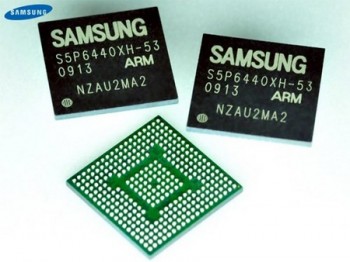The mobile phone manufacturer that never sleeps, Samsung, is busy pushing the limits of mobile CPUs; their new smartphones are likely to sport dual-core 2.0GHz CPUs by the end of the year. These new CPUs will almost certainly power the Galaxy S 3 or whatever they decide to call their next flagship Android phone, but I think Samsung might also consider using these chips in the next Galaxy Tab 2, since the Nvidia Tegra 2 at 1.5GHz in their MWC 2011 showcase model paled in comparison with the iPad 2.

If you take the most popular netbooks of today, they’re all equipped with CPUs that are 1.6-1.8GHz fast. Even the entry level MacBook Air has a 1.8GHz CPU. Do we need this kind of power in a mobile device? Sure, faster is always better, but optimization is more important. Even the current-generation 1GHz ARM Cortex A8 CPUs like the Hummingbird and Apple’s own 1.2GHz A5 haven’t been fully utilized, so simply increasing the CPU speed might just seem like a waste.
Games like Fruit Ninja still perform poorly even on my 1GHz Nexus S, but this isn’t because of the “slow” CPU – it’s because not all titles have been optimized to take care of the faster CPUs. And this is partly because they didn’t have time to do so. If we keep jumping and doubling gigahertz every year, we’ll still have sluggish games on 5GHz phones and that doesn’t help anyone – not the developer, not the manufacturer, not the user.
I don’t think the R&D heads at Samsung will be glancing at this post anytime soon, but if they do, my advice to them is: Chill out. Go easy on the CPU clock speeds. Let the developers make use of the existing power and then make something faster! I’m not against innovation. I’m only suggesting you let the developers make their software run faster, without making faster hardware and making them play catch-up. A four-year old iPhone (2G) with a 620MHz CPU underclocked to 400MHz is still far smoother and more responsive than most other 800MHz phones. Why? Because Apple spent time optimizing the OS for those 400MHz cycles.
Just my 2GHz.. I mean 2 cents – feel free to go against me in the comments box below!






They’ll hit the speeds first and then do the optimizations.
It should slow down around 2GHz. Like it did for PCs around 3GHz.
The buzz when PCs were getting “faster” around 1GHz (post Pentium 3s etc) was just like it is with phones today.
Think of why there’s no Pentium 5, and they kinda rebooted the series to dual core, core-2 duo and so on.
History repeats.
I doubt … The optimizations is more software than hardware. Moto Milestone on 800MHz or less is more smooth than Galaxy Ace running 800Mhz.
well…. agree with both of you….lets see how Samsung Galaxy S II…. performs…..its got 1.2 GHz DC processor…..Way faster than rest…..
As a user, I’ll definitely go for a faster machine at similar prices as that would mean longevity of my device (power issues notwithstanding).
And you’ll see processor speeds flattening out here too within the next two years, replaced by multiprocessor, and power efficient machines.
So if the new tablets become faster than existing laptops soon, expect people to boot off linux distros (something more useful) on them